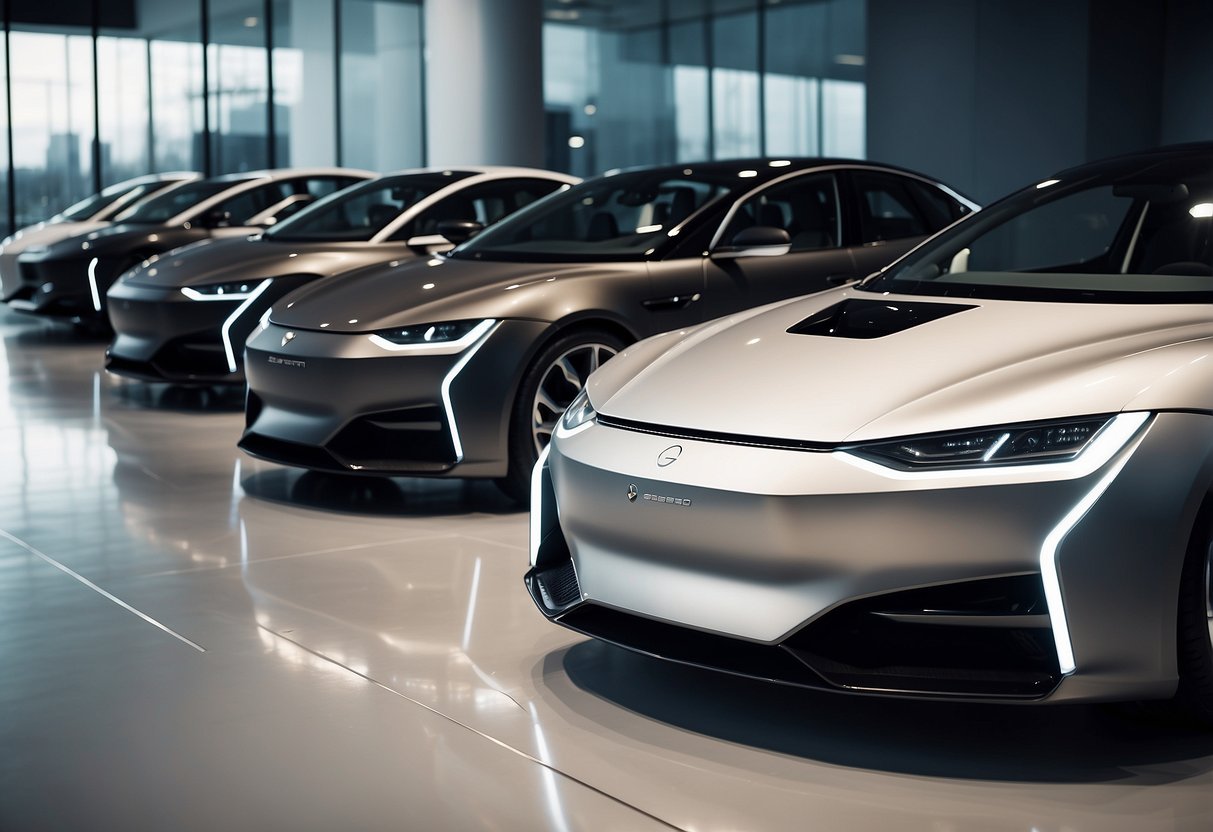
10. Cadillac Lyriq
The Cadillac Lyriq stands out in the luxury electric vehicle market with its sleek design and advanced technology. Equipped with a 100 kWh battery, it offers an estimated range of over 300 miles on a single charge.
The Lyriq’s design is both modern and sophisticated, featuring a distinctive front grille and sleek lines that enhance its aerodynamic profile. Inside, the vehicle offers a spacious and luxurious cabin with high-quality materials and cutting-edge technology, including a 33-inch LED display that spans the dashboard.
Performance-wise, the Lyriq boasts impressive acceleration and smooth handling, making it a pleasure to drive. The electric motor delivers quick and responsive power, ensuring a dynamic driving experience. Safety features include advanced driver assistance systems and a suite of sensors for enhanced driving support.
Charging the Lyriq is convenient with its fast-charging capability, allowing for significant battery replenishment in a short amount of time. This makes it versatile for both urban commuting and longer road trips. The Lyriq is a compelling choice for those seeking a blend of luxury, performance, and sustainability in an electric vehicle.
Key Features of Luxury Electric Vehicles
Luxury electric vehicles in 2024 combine exceptional performance, cutting-edge design, and advanced technology to offer an unparalleled driving experience. These features set them apart in an increasingly competitive market.
Performance and Speed
Luxury electric vehicles boast impressive acceleration and top-speed capabilities. Many models feature powerful electric motors that deliver instant torque, allowing for rapid acceleration from 0 to 60 mph in under four seconds.
All-wheel drive setups enhance traction and handling, providing a smoother ride. Some models even offer adaptive suspension systems that automatically adjust for optimal performance based on driving conditions. Regenerative braking systems are common, converting kinetic energy back into stored electricity to extend the driving range.
Design and Comfort
Design and comfort are paramount in luxury electric vehicles. Sleek, aerodynamic exteriors not only enhance aesthetics but also contribute to energy efficiency. High-quality materials such as leather, wood, and carbon fiber are often used in the cabin.
Advanced climate control systems ensure a comfortable interior environment, with multiple zones and personalized settings. Spacious seating with ergonomic design provides long-lasting comfort for all occupants. Panoramic sunroofs, ambient lighting, and noise-canceling technologies further elevate the driving experience.
Advanced Technology
Luxury electric vehicles are equipped with the latest technological innovations. Infotainment systems with large, high-resolution touchscreens offer seamless connectivity through smartphone integration, voice control, and navigation.
Driver-assistance features like adaptive cruise control, lane-keeping assist, and automated parking enhance safety and convenience. Many models include over-the-air software updates, ensuring that the vehicle’s systems remain up-to-date.
Advanced battery management systems improve energy efficiency and longevity, while intelligent charging solutions provide faster, more convenient ways to recharge the vehicle, whether at home or on the go.
The Future of Electric Vehicles
The future of electric vehicles (EVs) promises significant advancements in battery technology and a stronger focus on sustainability and environmental impact.
Innovations in Battery Technology
Battery technology for EVs is evolving rapidly. The introduction of solid-state batteries, which offer higher energy density and faster charging times, is a notable development. Current lithium-ion batteries, though widely used, come with challenges such as longer charging times and limited lifespan.
Research is increasingly focused on materials like silicon and graphene to improve battery efficiency. Manufacturers are also exploring wireless charging technologies, eliminating the need for charging cables and ports.
These innovations aim to extend driving range, reduce charging times, and enhance overall performance. Consumers can expect more affordable EVs as production costs decrease due to these advancements.
Sustainability and Environmental Impact
Sustainability remains a key consideration in the EV market. Many automakers are committed to reducing their carbon footprint by utilizing renewable energy sources in production processes. Recycled materials are being incorporated into vehicle components as well.
Battery recycling is becoming more efficient and widespread, mitigating the environmental impact of battery disposal. Efforts to source raw materials like lithium and cobalt responsibly are also gaining traction.
Governments and organizations are promoting EV adoption through incentives and stricter emissions regulations. These measures aim to reduce greenhouse gas emissions and dependence on fossil fuels, contributing to a cleaner environment.



